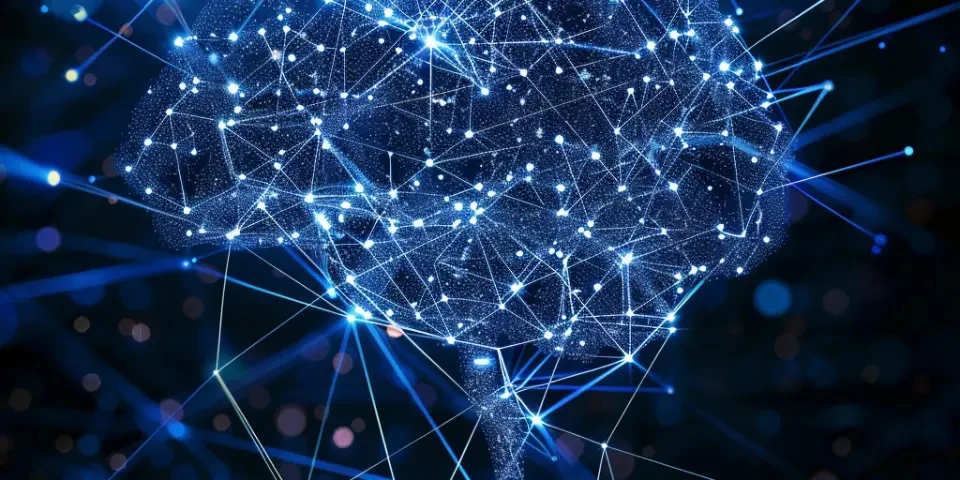AI for Sustainable Development Harnessing Technology for a Greener Future
Artificial Intelligence (AI) has emerged as a powerful tool in addressing the challenges of sustainable development. With its ability to analyze vast amounts of data, optimize processes, and make accurate predictions, AI offers a wide range of applications that can contribute to building a greener future. In this article, we will delve into the different aspects where AI can be harnessed to promote sustainability and explore its potential impact.
1. Sustainable Energy
The energy sector plays a vital role in addressing climate change and minimizing the environmental footprint. AI can optimize energy generation and distribution by analyzing consumption patterns, predicting peak demand, and optimizing energy flows. Through machine learning algorithms, AI systems can automatically adjust energy production from renewable sources to meet demand, thereby reducing waste and maximizing efficiency.

Furthermore, AI-powered smart grids can enable real-time monitoring of energy consumption, allowing users to make informed decisions about energy usage and optimize their consumption. This technology can also facilitate the integration of renewable energy sources into the electrical grid, ensuring a smooth transition towards a cleaner energy mix.
2. Environmental Monitoring and Conservation
AI-driven systems can play a crucial role in monitoring and conserving the environment. Drones and satellites equipped with AI algorithms can monitor and analyze changes in ecosystems, track deforestation, and detect illegal activities such as poaching or illegal logging. By providing real-time data and insights, AI can help authorities take timely actions to protect biodiversity and preserve our natural resources.
Moreover, AI can also assist in managing and optimizing waste management systems. By analyzing data on waste generation, collection routes, and recycling processes, AI algorithms can identify patterns and suggest more efficient strategies for waste disposal and recycling. This can significantly reduce landfill emissions and promote a circular economy.
3. Sustainable Agriculture
The agriculture sector faces numerous challenges, including optimizing crop yields, minimizing water usage, and reducing the environmental impact of farming practices. AI-powered systems can analyze various factors such as weather patterns, soil conditions, and crop characteristics to provide farmers with predictive insights for informed decision-making.
For example, AI algorithms can recommend optimal irrigation schedules based on weather forecasts and soil moisture levels, reducing water waste. AI can also help identify pests and diseases in crops, enabling the early detection and targeted application of pesticides, thus minimizing their overall use and environmental impact.
4. Intelligent Transportation Systems
AI can revolutionize transportation systems and contribute to a greener future. Intelligent algorithms can optimize traffic flow, reduce congestion, and minimize fuel consumption. By analyzing real-time data from various sources such as GPS, traffic cameras, and sensors, AI systems can dynamically adjust traffic signals, suggest alternative routes, and manage traffic in a smarter way.
Furthermore, AI can play a significant role in promoting sustainable forms of transportation. Shared mobility services, such as ride-sharing platforms, can leverage AI algorithms to optimize route planning and vehicle utilization, reducing the number of vehicles on the road. Additionally, AI can assist in the development of autonomous vehicles, which have the potential to further optimize fuel efficiency and reduce emissions.
5. Sustainable Urban Planning
AI can support urban planners in creating sustainable cities by analyzing large amounts of data and predicting future trends. By considering factors such as population growth, transportation patterns, and energy consumption, AI algorithms can assist in designing efficient urban layouts, optimizing the placement of facilities, and promoting sustainable infrastructure development.
Moreover, AI-powered systems can enhance the design and operation of smart buildings. Through real-time monitoring and analysis of energy consumption, temperature, and occupancy patterns, AI can optimize building management systems to minimize energy waste and provide a comfortable and sustainable environment for occupants.
6. Water Management
Water scarcity is a global challenge, and AI can play a significant role in its management. AI algorithms can analyze water usage patterns, weather data, and infrastructure conditions to predict demand, identify leaks, and optimize water distribution networks. By minimizing water losses and optimizing distribution, AI can contribute to more efficient water management and conservation.
Furthermore, AI can support water treatment processes by analyzing water quality data and optimizing treatment methods, ensuring safe and sustainable water supplies for communities.
7. Climate Change Prediction and Mitigation
AI can be a valuable tool in combating climate change by predicting the impact of different scenarios and identifying effective mitigation strategies. AI-powered climate models can analyze vast amounts of data, including historical climate records, satellite imagery, and simulation data, to project future climate trends and assess the effectiveness of various intervention measures.
By combining these predictive capabilities with real-time data from weather stations and atmospheric sensors, AI algorithms can provide valuable insights for decision-makers, enabling them to take proactive measures to mitigate climate change impact and reduce greenhouse gas emissions.
8. Social Equity and Inclusion
AI can also contribute to social equity and inclusion, which are essential aspects of sustainable development. By analyzing socio-economic data and identifying patterns, AI algorithms can support initiatives to reduce inequalities, such as targeted welfare and healthcare programs.
Facial recognition technology, when used ethically and responsibly, can help vulnerable populations access essential services and prevent identity fraud. Furthermore, AI-powered language translation tools can promote inclusivity by breaking down language barriers and facilitating communication between diverse communities.
Conclusion
Artificial Intelligence presents immense opportunities for sustainable development across various sectors. From energy optimization to climate change mitigation, AI can play a transformative role in building a greener future. However, it is important to leverage this technology responsibly while addressing ethical considerations and ensuring that the benefits of AI are accessible to all. By harnessing the potential of AI, we can pave the way for a sustainable and prosperous future.
Frequently Asked Questions
Q1/">https://www.conservationmetrics.com/.
Explore your companion in WeMate